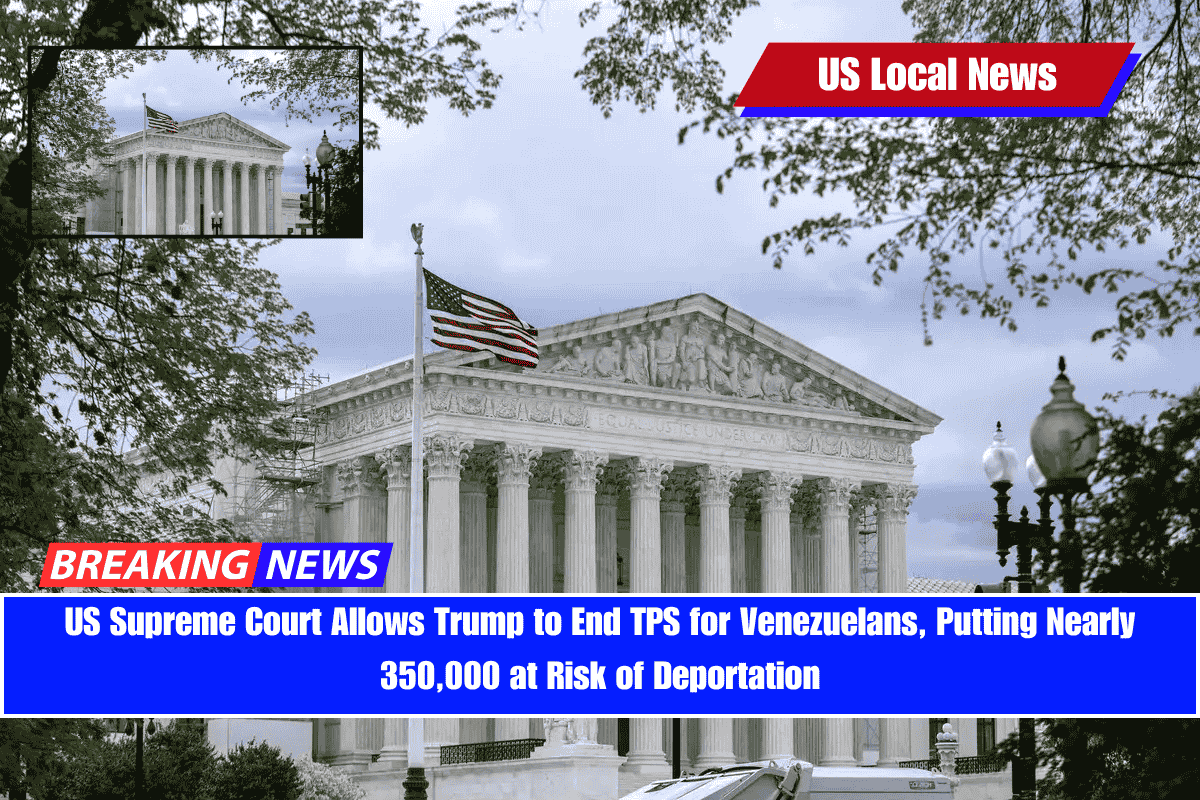In a major immigration decision, the U.S. Supreme Court has allowed President Donald Trump’s administration to end Temporary Protected Status (TPS) for hundreds of thousands of Venezuelans living in the United States. The court’s order was brief, unsigned, and gives a green light to Trump’s efforts to ramp up deportations as part of his tough stance on immigration.
What Is TPS and Why It Matters
Temporary Protected Status (TPS) is a program under U.S. law that offers deportation protection and work permits to people from countries suffering from war, natural disasters, or crises. The status is usually granted by the Department of Homeland Security (DHS) and can be renewed depending on the situation in the home country.
Under President Joe Biden, Venezuela was designated for TPS in 2021 and again in 2023, due to its political and economic crisis. At that time, over 348,000 Venezuelans were registered under the program, which was extended until October 2026.
What the Supreme Court Decided
On Monday, the Supreme Court accepted a request from the Justice Department to lift a previous judge’s order that had stopped Homeland Security Secretary Kristi Noem from ending TPS for Venezuelans.
The court, which has a 6-3 conservative majority, gave no detailed explanation for the decision. Only Justice Ketanji Brown Jackson publicly disagreed with the order.
The court’s decision doesn’t cancel all legal protections immediately but opens the door for the Trump administration to begin removing work permits and preparing mass deportations of Venezuelan TPS holders.
Legal Battle and Backlash
The TPS decision was being challenged by a group of Venezuelan immigrants and an advocacy group called the National TPS Alliance. They argued that ending TPS would make nearly 350,000 people vulnerable to deportation and would harm the U.S. economy.
Judge Edward Chen of San Francisco had previously ruled that Noem’s decision violated federal laws governing agency actions, and criticized the administration for making racially charged claims against the entire Venezuelan community.
He pointed out that Venezuelan TPS holders are actually more educated and less likely to commit crimes than the average U.S. resident.
Human Impact: “We Are Defenseless”
Many Venezuelan migrants expressed fear and sadness after the court’s decision.
Maria Rodriguez, a 33-year-old mother living in Orlando, said, “We’re defenseless, vulnerable. We came here for safety and a future. We can’t go back.”
Another migrant, Reinaldo Alvarado, said he may leave for Spain as he no longer feels safe in the U.S., even with TPS. “They are taking everyone now. My plan is to go elsewhere,” he said.
What Happens Next?
While the Supreme Court ruling lets the Trump administration proceed, there’s still a chance for future legal challenges, especially if the administration starts cancelling TPS documents or work permits.
Interestingly, in a separate ruling last week, the court blocked Trump’s attempt to deport Venezuelans using a rarely-used law from 1798 called the Alien Enemies Act, criticizing his administration for skipping proper legal steps.
The administration had accused some migrants of being tied to Tren de Aragua, a Venezuelan gang labeled a foreign terrorist organization.











Leave a Reply